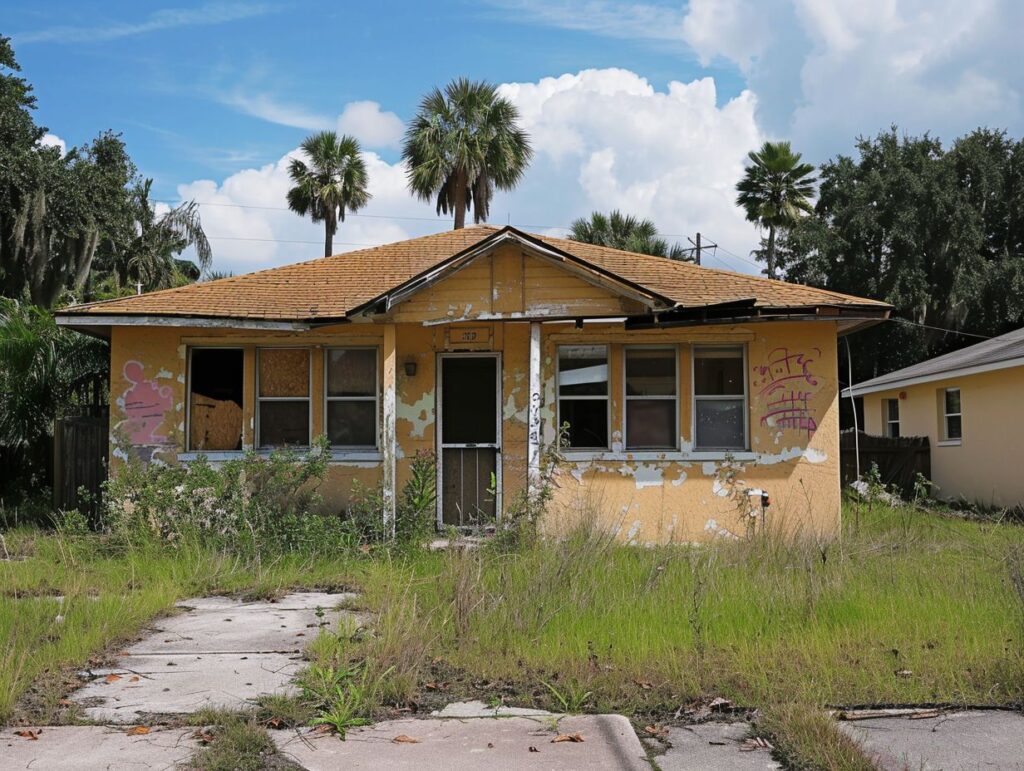If you are a landlord or a tenant in Florida, it is crucial to understand the state’s landlord-tenant laws to ensure a smooth and fair rental agreement.
This article will explore the rights and responsibilities of both parties, from legal requirements for a rental agreement to rules for security deposits and rent increases.
We will discuss protections for tenants, laws against discrimination, rights for repairs and maintenance, rules for entry to rental properties, and steps for resolving disputes.
Stay informed and empowered with this comprehensive guide to Florida’s landlord-tenant laws.
Key Takeaways:

- Florida’s landlord-tenant laws outline the rights and responsibilities of both parties in a rental agreement.
- Tenants in Florida are protected against discrimination and have rights regarding repairs, maintenance, and entry to their rental property.
- In case of disputes, options for mediation and arbitration and legal resources are available for both landlords and tenants in Florida.
What Are Florida’s Landlord-Tenant Laws?
The landlord-tenant laws in Florida, as detailed in the Florida Statutes, establish a thorough framework outlining the rights and responsibilities of both landlords and tenants in the state. These laws ensure that regulations and laws governing rentals are clearly defined and enforceable.
What Are the Rights and Responsibilities of Landlords and Tenants in Florida?
In Florida, landlords and tenants have distinct rights and responsibilities outlined in Florida law. This framework aims to maintain a balanced relationship, addressing matters like rent payments, unit repairs, and lease agreements.
What Are the Legal Requirements for a Rental Agreement in Florida?
A rental agreement in Florida must comply with Florida landlord-tenant laws, specifying terms such as rent amount, lease duration, and responsibilities for repairs and maintenance.
A legally binding rental agreement should include clauses related to security deposits, pet policies, and utilities. Required disclosures may involve informing tenants about lead-based paint hazards in properties built before 1978 or any known issues that could affect health and safety.
Terms of lease termination should outline proper notice periods for both landlords and tenants in case of early termination or non-renewal. It is crucial for landlords to adhere to Florida rental laws to ensure protection for both parties and avoid potential legal disputes.
What Are the Rules for Security Deposits in Florida?
In Florida, security deposits are governed by specific security deposit laws that outline how these funds should be managed, including guidelines for refunding the deposit and allowable deductions.
Landlords in Florida must give tenants a written notice within 30 days of getting a security deposit, outlining the terms and conditions for its use. The security deposit should be kept in a separate bank account, and landlords must share the account details with the tenant within 30 days of receiving the deposit.
When returning the deposit, landlords have 15 days to refund the full amount or provide a detailed list of deductions along with the remaining balance. Failure to adhere to these regulations can lead to legal repercussions for landlords.
What Are the Laws Regarding Rent Increases in Florida?
Florida’s rent laws do not impose a limit on how much rent can be increased, but any rent increase must comply with the terms outlined in the lease agreement and provide proper notice to the tenant.
Landlords in Florida are required to give tenants at least 15 days’ notice before increasing the rent. This notice must be in writing and should detail the new rental amount and the date it will go into effect. Tenants have the right to refuse the rent increase and choose to vacate the property instead.
If the tenant continues to stay after the rent increase, they are legally obligated to pay the higher amount as per the updated lease agreement. It is important for both landlords and tenants to understand their rights and responsibilities under Florida’s landlord-tenant laws to ensure a smooth rental experience.
What Are the Regulations for Evictions in Florida?
The eviction process in Florida is guided by strict regulations that specify the circumstances in which a landlord can evict a tenant, which may include non-payment of rent and lease violations.
Upon deciding that an eviction is necessary, the initial step typically involves the landlord serving the tenant with a written notice to vacate the property. In Florida, the content of this notice may vary depending on the grounds for eviction but usually includes a specific timeframe for the tenant to either address the issue or vacate the premises.
Failure to comply may lead the landlord to initiate an eviction filing in court, where a judge will assess the situation. It is essential for tenants to understand their rights throughout this process, including the opportunity to present their perspective and potentially contest the eviction on valid grounds.
What Are the Protections for Tenants in Florida?
Tenants in Florida are provided with various protections under the Florida Fair Housing Act and other housing discrimination laws. These laws are designed to prevent unfair treatment and guarantee safe living conditions.
What Are the Laws Against Discrimination in Florida?
The Florida Fair Housing Act, in conjunction with the Federal Fair Housing Act, prohibits discrimination in housing based on race, color, national origin, sex, disability, and familial status.
These laws aim to ensure that all individuals have equal access to housing opportunities without facing discrimination. Discrimination based on these protected characteristics is illegal and can take various forms, such as refusal to rent or sell, unequal terms and conditions, harassment, or retaliation.
If someone believes they have been a victim of housing discrimination, they can file a complaint with the appropriate agency, such as the U.S. Department of Housing and Urban Development. Violating housing discrimination laws can lead to serious legal consequences, including fines, penalties, and potential civil lawsuits.
What Are the Rights for Repairs and Maintenance in Florida?
Under Florida law, landlords must keep rental properties in a condition that meets the warranty of habitability, ensuring that essential repairs and maintenance are carried out promptly.
Tenants also have a duty to report any issues or repairs needed to the landlord promptly. It is important for tenants to communicate safety concerns or habitability issues, such as water leaks, faulty electrical systems, or pest infestations.
If a landlord does not address reported problems within a reasonable timeframe, tenants may have legal options through the court system. Florida law offers avenues for tenants to seek remedies, such as rent withholding or taking legal action to compel the landlord to make necessary repairs and maintain a safe living environment.
What Are the Rules for Entry to Rental Properties in Florida?
Florida’s notice of entry laws mandate that landlords must give tenants reasonable notice before entering the rental property, usually at least 12 hours in advance, except in cases of emergencies. This notice needs to be provided in writing and should include the date, time, and purpose of entry.
Permissible reasons for a landlord to enter a rental property in Florida encompass essential repairs, inspections, or showcasing the property to potential buyers or renters. Landlords are obligated to uphold tenants’ privacy rights and cannot access the property without consent unless there is an emergency.
Understanding these legal requirements is crucial for ensuring a harmonious relationship between landlords and tenants while upholding the rights of both parties under Florida Statutes.
What Are the Steps for Resolving Landlord-Tenant Disputes in Florida?
Resolving landlord-tenant disputes in Florida typically involves following a series of steps designed to address and remedy issues under Florida law. These steps may include negotiation, mediation, and, if necessary, legal action.
What Are the Options for Mediation and Arbitration in Florida?
Mediation and arbitration serve as alternative dispute resolution methods for landlord-tenant issues in Florida, providing a more cost-effective and less adversarial approach compared to court litigation.
These processes enable both parties in a rental agreement to address their grievances in a neutral setting and strive towards a mutually satisfactory agreement. Mediation, overseen by a mediator, emphasizes open communication and the search for common ground. Conversely, arbitration involves a neutral arbitrator who hears both sides and issues a binding decision.
Qualified mediators and arbitrators play vital roles in guiding the discussion, ensuring impartial treatment, and facilitating a resolution that benefits both the landlord and tenant.
What Is the Process for Filing a Lawsuit in Florida?
Initiating a legal process in Florida for landlord-tenant issues involves adhering to specific legal procedures, such as completing the necessary paperwork, providing notice to the other party, and participating in court proceedings.
After collecting evidence to substantiate the case, the subsequent step entails submitting the required paperwork to the relevant court. This paperwork typically comprises a complaint detailing the grievances against the other party.
Once the paperwork is filed, it is crucial to ensure that the other party is appropriately served with a copy of the lawsuit, granting them the opportunity to respond. Following this, a court date will be scheduled for both parties to present their arguments and evidence.
The potential outcomes of the case may include financial compensation, eviction orders, or adjustments to the lease in accordance with Florida law.
What Are the Legal Resources Available for Landlord-Tenant Issues in Florida?
There are several legal resources available to assist with landlord-tenant issues in Florida, including online resources like DoorLoop’s Forms Page, which offers essential forms and documents.
These resources cover a wide range of topics such as lease agreements, eviction notices, and security deposit disputes. Legal aid organizations such as Florida Rural Legal Services provide free or low-cost legal assistance to eligible individuals.
For comprehensive information on landlord-tenant laws in Florida, individuals can also seek guidance from government agencies like the Florida Department of Business and Professional Regulation.
These resources offer assistance, information, and support for both landlords and tenants dealing with legal matters in the state.
Frequently Asked Questions
What are Florida’s Landlord-Tenant Laws?
Florida’s Landlord-Tenant Laws are a set of regulations that govern the rights and responsibilities of both landlords and tenants in rental properties within the state of Florida.
Who is considered a landlord and a tenant under Florida’s Landlord-Tenant Laws?
A landlord is a person or entity who owns a rental property, while a tenant is someone who has been granted the right to occupy that property in exchange for payment of rent.
What are some key rights and responsibilities of landlords under Florida’s Landlord-Tenant Laws?
Landlords in Florida are required to provide a habitable living space, maintain the property, and follow proper eviction procedures. They also have the right to collect rent and enforce lease agreements.
What are some key rights and responsibilities of tenants under Florida’s Landlord-Tenant Laws?
Tenants in Florida have the right to a safe and clean living environment, privacy, and the ability to file complaints against landlords who do not fulfill their responsibilities. They are also responsible for paying rent on time and following the terms of the lease agreement.
Can landlords and tenants make changes to their lease agreements under Florida’s Landlord-Tenant Laws?
Yes, landlords and tenants can make changes or alterations to their lease agreements as long as both parties agree and the changes do not violate any of the state’s landlord-tenant laws.
What happens if a landlord or tenant violates Florida’s Landlord-Tenant Laws?
If either party violates the laws, the other party has the right to take legal action. This can include filing a complaint with the local housing authority or taking the case to court.


























Rate this article:
Average rating 0 / 5. Vote count: 0
No votes so far! Be the first to rate this post.
No Comments yet!